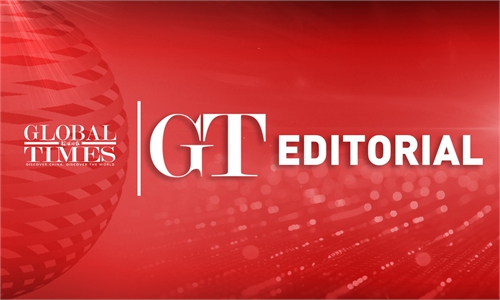 Bursa Malaysia chairman Tan Sri Abdul Wahid Omar
Bursa Malaysia chairman Tan Sri Abdul Wahid OmarKUALA LUMPUR: Malaysia is in a “sweet spot” for economic growth and investment, with the “stars aligning” in its favour, according to industry leaders and market analysts.
This optimism stems from the country’s robust macroeconomic fundamentals, improving investment climate and strategic positioning in the global supply chain.
Maybank Investment Bank head of regional equity research Anand Pathmakanthan highlighted Malaysia’s acceleration in gross fixed capital formation, driven by a blend of domestic direct investment (DDI) and foreign direct investment (FDI).
“The good news is it’s not just FDI, it’s also DDI, which is far more important in terms of job creation and tax generation,” he said during his presentation at the Institute of Chartered Accountants in England and Wales Economy Insight Conference 2024 yesterday.
Anand said for the last 10 years, local companies have not been investing, which has a lot to do with political instability.
“They’ve been investing less and less in Malaysia, which is always a bad sign for any country,” he said.
But in the last two years, he said Malaysia is seeing a recovery in DDI.
“The recovery in DDI reflects the confidence that domestic businesses are feeling better about the environment. That (DDI) is going to be a key support when issues about trade crop up next year with Trump 2.0,” he said.
Meanwhile, Anand said Budget 2025 is “very well-balanced,” emphasising initiatives to crowd-in private sector investments.
He projected continued economic growth, supported by a civil service pay hike, minimum wage increases and enhanced cash handouts, which would sustain domestic consumption in 2025.
“Malaysia is in a very sweet spot, especially when it comes to attracting supply chain relocation and FDI,” he said.
Anand projected Malaysia’s gross domestic product (GDP) to conclude at 5.2% in 2024 and 4.9% in 2025, outpacing the Asean-6 regional average of 4.8% in 2024 and 4.7% in 2025.
Affin Bank Bhd president and chief executive officer Datuk Wan Razly Abdullah echoed the optimism, projecting GDP growth of 5.2% in 2025, up from the bank’s projection of 5% for this year.
He attributed this to stable oil prices, elevated crude palm oil (CPO) prices and active construction and technology sectors.
“The elevated price of oil and CPO will provide good income streams,” he said, adding that Johor and Klang Valley developments would boost the property sector.
“The stars are aligning for Malaysia thanks to our stable political environment and strong FDI flows.”
Wan Razly also expressed bullishness on the ringgit, predicting it to strengthen to RM4.10 against the US dollar by end-2025, supported by the US Federal Reserve interest rate cuts.
Adding to the optimism for Malaysia’s economic prospects, Bursa Malaysia chairman Tan Sri Abdul Wahid Omar highlighted the robust performance of the local bourse, driven by a favourable investment environment and strong macroeconomic fundamentals.
“Malaysia has been a vibrant market for initial public offerings (IPOs) this year. Up to the end of November, we had 47 listings that raised a total of US$1.5bil. By year-end, we expect to close with 54 or 55 listings,” he said.
He noted that the average daily trading value for 2024 has increased by over 50% year-to-date, reaching approximately RM3.1bil.
Abdul Wahid believes this momentum will be sustained into 2025, with 19 IPO approvals in hand for next year.
“Looking at the pipeline, I think 2025 should be another good year,” he said.
He said “the overall good macroeconomics are being translated into the real world and capital markets,” coupled with a shorter processing time for IPO listings of just three months.
Separately, Abdul Wahid said Malaysia should further tap into the Asean market and leverage its strategic advantages, as the regional bloc is well-positioned amidst global uncertainties, particularly ahead of the United States’ tariff threats on China.
Abdul Wahid urged Malaysia to continue to pursue its relationship with Asean in a pragmatic and constructive manner to further capitalise on the bloc’s 670 million consumers.
“The biggest potential that we have is in Asean. Our trade and investments (in the bloc) is relatively low compared to other trade partners and that can be enhanced further,” he said.
Abdul Wahid also emphasised that Malaysia should not be mutually exclusive to any specific trade groupings, trade talks or bilateral agreements and should focus on further strengthening trade relationships.
In the realm of inflation, both Anand and Wan Razly anticipate a rise to 3% in 2025, up from the current 1.9%, mainly due to the targeted petrol subsidy scheduled to take effect mid next year.
Despite the projected uptick, both of them said Malaysia’s inflation rate will stay within a healthy range, underpinned by strong macroeconomic fundamentals and effective policy measures.
Related:
China's extensive global trade "circle of friends," driven by cooperation and mutual benefit, is becoming increasingly solid, continuously injecting certainty and growth momentum into the global economy.
Related posts:




